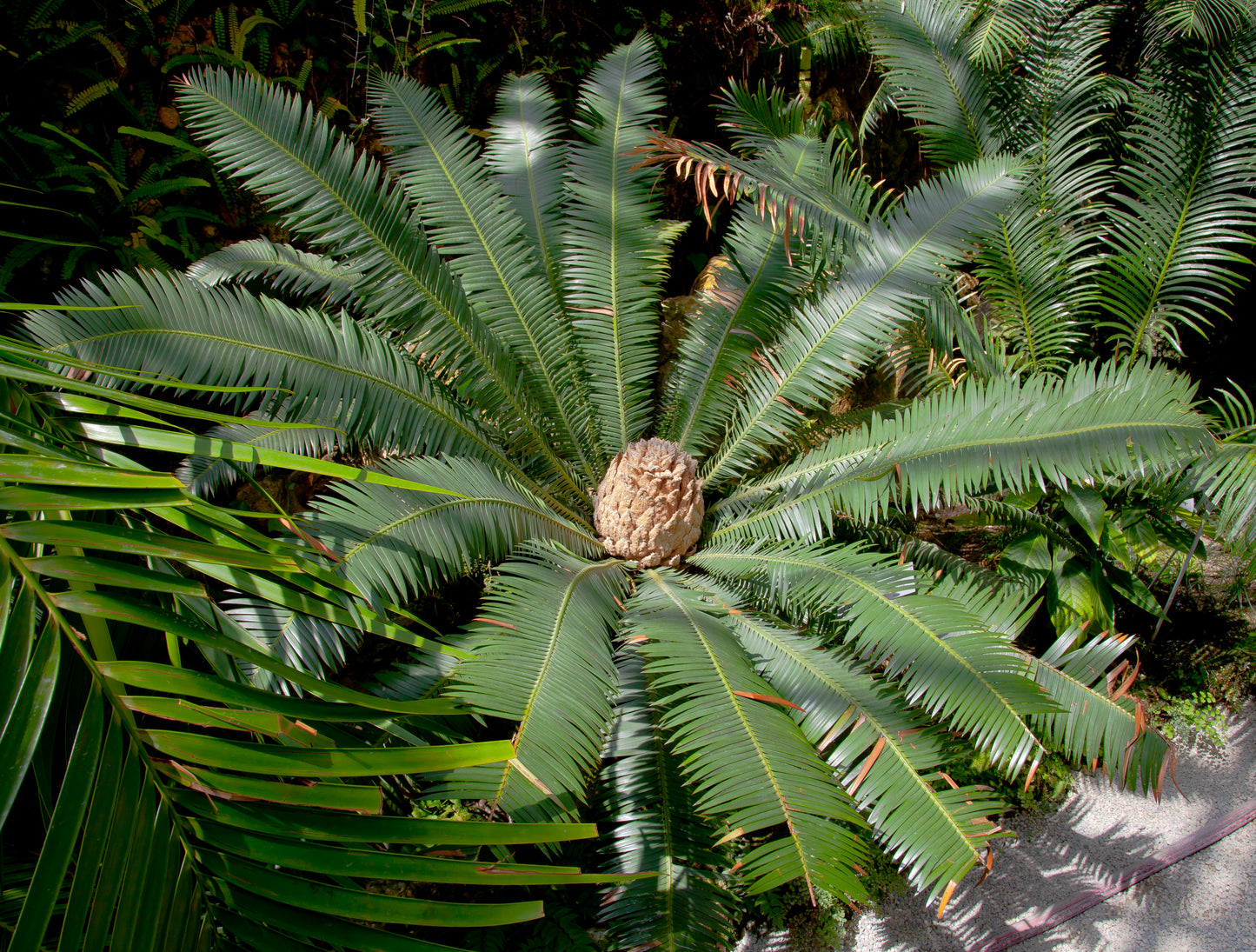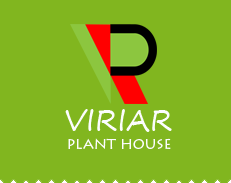VIRIAR
Dioon edule - Chestnut Dioon - 15 - 25 cm plant
Dioon edule - Chestnut Dioon - 15 - 25 cm plant
No se pudo cargar la disponibilidad de retiro
Plant Description
Name: Dioon edule
Common Name: Cardboard Palm, Edule Cycad
Dioon edule, commonly known as the Cardboard Palm or Edule Cycad, is a distinctive and ornamental cycad native to Mexico. Known for its striking appearance and prehistoric lineage, this plant is often used in landscaping and garden design due to its unique foliage and adaptability to various conditions.
The Cardboard Palm is a slow-growing cycad that can reach heights of 1-2 meters (3-6 feet) with a similar spread. It features a rosette of leathery, pinnate leaves that are dark green and have a slightly waxy texture. The leaves are arranged in a spiral pattern around the trunk and can grow up to 1 meter (3 feet) long. The plant's trunk is typically short and robust, giving it a palm-like appearance. It does not produce traditional flowers but rather reproductive cones that are characteristic of cycads.
Cultivation of Dioon edule
Conditions:
- Light: Dioon edule thrives in full sun to partial shade. It prefers bright, indirect light but can tolerate full sun, especially in cooler climates. In hotter regions, some afternoon shade can help prevent leaf scorch.
- Temperature: This cycad prefers warm climates with temperatures ranging from 15-30 °C (59-86 °F). It can tolerate brief periods of cooler temperatures but should be protected from frost and temperatures below 5 °C (41 °F). It is best suited for USDA zones 9-11.
- Soil: The Cardboard Palm prefers well-draining, sandy or loamy soils rich in organic matter. It can adapt to various soil types but thrives in slightly acidic to neutral pH conditions. Ensure good drainage to prevent root rot.
- Water: Regular watering is important, especially during the growing season. Keep the soil consistently moist but not waterlogged. Reduce watering in the winter months when the plant's growth slows down.
Planting and Care:
- Planting: Choose a location with full sun or partial shade and ensure well-draining soil. For container planting, use a large pot with good drainage and a rich, well-draining potting mix. If planting in the ground, ensure the site has well-draining soil and enough space for the plant’s growth.
- Fertilization: Feed Dioon edule with a balanced, slow-release fertilizer formulated for cycads. Apply fertilizer every 6-8 weeks during the growing season to support healthy growth. Avoid over-fertilizing, as this can lead to nutrient imbalances.
- Maintenance: Prune off any dead or damaged leaves to maintain the plant’s appearance and encourage new growth. The Cardboard Palm is relatively low-maintenance but should be monitored for pests and diseases. Check for common issues such as scale insects or fungal infections.
Growing from Seeds
- Seed Preparation: Soak the seeds of Dioon edule in warm water for 24-48 hours to soften the outer seed coat and improve germination rates. You can also scarify the seeds by lightly sanding them to facilitate water absorption.
- Sowing: Sow the seeds in a well-draining seed-starting mix. Plant the seeds about 2-3 cm (1 inch) deep and cover lightly with soil.
- Germination Conditions: Place the seed tray in a warm, sunny location with temperatures around 25-30 °C (77-86 °F). Keep the soil consistently moist but not waterlogged. Germination can be slow and may take several weeks to a few months.
- Care for Seedlings: Once seedlings emerge, provide them with bright, indirect light and gradually acclimate them to more direct sunlight. Transplant seedlings into larger pots or directly into the garden when they are large enough to handle.
Dioon edule is a fascinating and attractive cycad that adds a touch of prehistoric elegance to any garden. Its distinctive foliage and slow growth make it a standout choice for collectors and garden enthusiasts looking for a unique and durable plant.
Shipping & Returns
Shipping & Returns


















